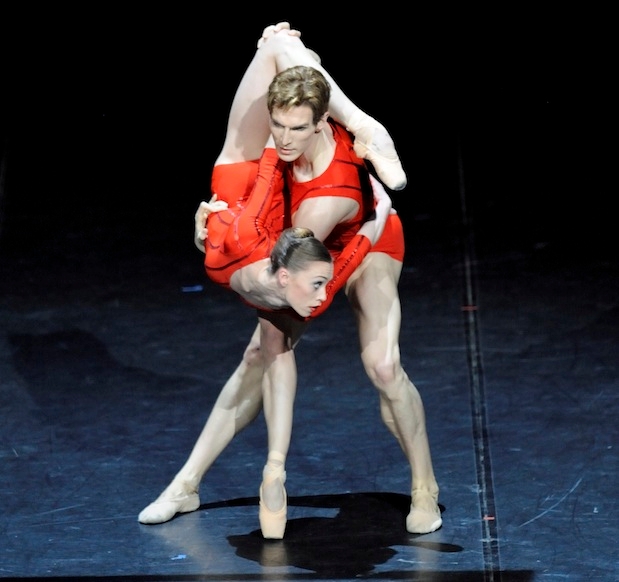Stuttgart Ballet’s rapid ascent to fame is at the core of one of the most interesting chapters of ballet history. Between 1961 and 1973, the year of his untimely death, the South African Royal Ballet-trained choreographer John Cranko turned what had been a fairly standard ballet ensemble into a unique dance phenomenon. Although Stuttgart is still known as a ‘choreographer’s company’, his legacy was never artistically constraining. His successors took his powerful vision on board and broadened the repertoire in line with it. It was thus a pleasure to see the history of the company celebrated through the composite programme Made in Germany, in which past and present were seamlessly combined.
A multifaceted bill, made up mainly of duets and solos, can be risky, as the fairly standard ‘gala-night’ structure can soon become repetitive. But Made in Germany did not seem like the stuff of galas, as each of the three parts came together as a thematically well-conceived showcase for the company’s artistic eclecticism.

Get Britain's best politics newsletters
Register to get The Spectator's insight and opinion straight to your inbox. You can then read two free articles each week.
Already a subscriber? Log in








Comments
Join the debate for just $5 for 3 months
Be part of the conversation with other Spectator readers by getting your first three months for $5.
UNLOCK ACCESS Just $5 for 3 monthsAlready a subscriber? Log in